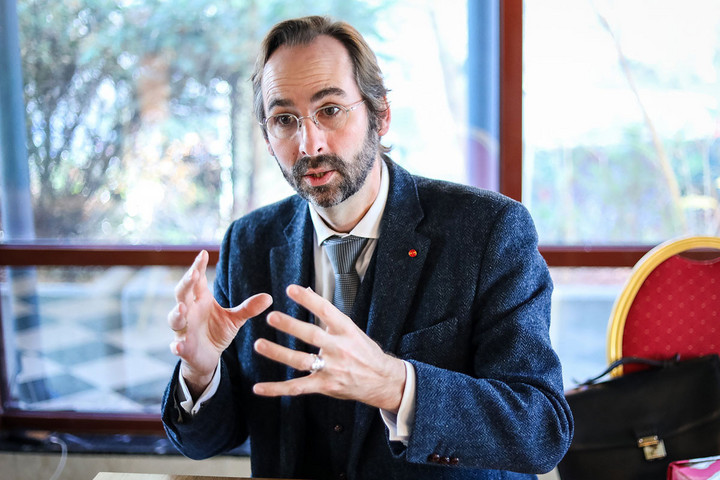The director of the legal studies institute of the European Center for Law and Justice (ECLJ), Grégor Puppinck, spoke to Magyar Hírlap before his book presentation at the Mathias Corvinus Collegium in Budapest. His new book, Inhuman Rights, is about the need for a conservative counter-revolution and discusses the issue of emerging human rights fundamentalism.
"Inhuman rights." The Hungarian title of his book suggests that in recent years, human rights have been turned against people and turned into something that limits freedoms instead of guaranteeing them.
– The anthropology supporting human rights has completely changed in the last decade. Human rights depend on anthropology, on what it means to be human. Therefore, the most difficult part of discussing the issue of human rights is not the rights, but the definition of the person. After the war, human rights were based on classical anthropology expressed through natural law. Today, this is more and more reminiscent of some kind of unnatural law. The original purpose of human rights was to protect the individual from the state so that he could realize his potential.
Today, human rights aim not only to protect from the state, but to give more and more power to the individual, so that the individual can decide what his own anthropology is. In a certain sense, we have forbidden society, the community, to define what it means to be human. It is an individualistic revolution that has changed human rights. In this, the common vision of man disappeared, and the individual's own self came completely to the fore.
– In his writing, he talks about a kind of grotesque individualism that redefines human rights. Is this an expression of the fact that the relationship between the individual and the community, which until now defined freedoms, has been broken?
– This is one of the main questions of the twentieth century. We were confronted on the one hand with the collectivism of fascism and communism, and on the other with an American type of individualism. European philosophy, on the other hand, tried to find the right balance between the individual and the group. But today, human rights are defined in such a way that the right of the individual prevails almost always over the community. For example, in immigration, when it comes to migrants, their individual rights are placed above the right of the community to preserve its identity. That is why they can come as they please, because their individual rights come before the good of the community.
Today, individuals demand human rights not only to liberate themselves from the rule of the state or the nation, but also from the family on a smaller scale. This is why the European Court of Justice always says that no tradition based on nation, culture, religion or even family values can be invoked to limit individual freedom. Today, the individual is the ultimate source of political legitimacy. The idea that society has a common will appears to be an illusion.
The only starting point is what one considers oneself to be. Globalism says that individuals can give up their national or religious identity to become one. If I forget that I am a man, that I am French, that I am a Christian, then I am the same as the Chinese who forgets that he is a man, that he is Chinese and so on. We can only be global citizens and one if we all forget who we are.
– The current human rights debate and the resulting justice system sees human evil and crime as something that can be trained out of people. Therefore, the sin is erased, but so is the concept of the guilty and the punishment itself. Does this offend people's sense of individual responsibility?
- The current ideal of human rights is that only the individual exists, and he must always prevail over the group. The individual is real, the community is not. In human rights, individual freedom is the only good we consider. Individual will is what human rights judges consider a priori good. It is an expression of human autonomy, so it must be unquestionably good. A healthy society defines the common good, for example the principles of public safety and common interests. Today, however, based on the new concept, the common interests of society are regarded as secondary. The state must justify why it wants something, while the individual cannot, according to human rights activists. The common good is thus considered a priori suspect.
- In his book, he claims that the narrowing of human dignity and the institutionalization of individual will pose a threat to parliamentary democracies. Why?
- The currently dominant institutional carriers of human rights pose a risk to the democratic system, as the will of the institutions protecting human rights takes precedence over national laws and constitutions. Those states that accept human rights conventions also oblige themselves to adapt their constitutions to them. So how can we talk about democracy like this? For example, the Vatican ratified the Convention on the Rights of the Child, but then the UN condemned them for not allowing abortion. Human rights and their institutions are now instruments of supranational governance, and therefore can oblige nation-states to revise their laws.
Source and image: Magyar Hírlap/Róbert Hegedűs













